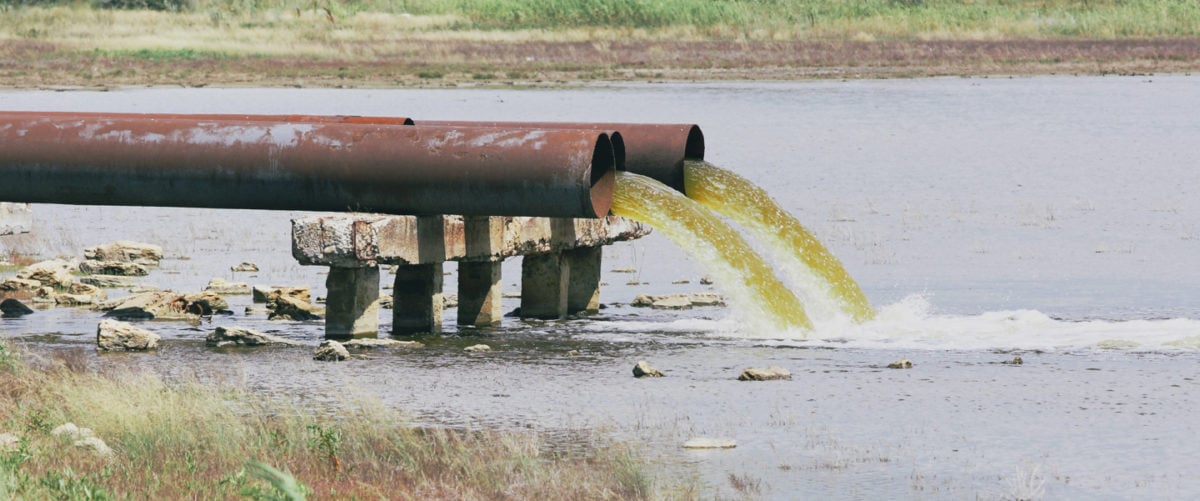We Must Hold Iowa Accountable For Failing To Protect Public Water
Published Jul 29, 2021

We felt so strongly about Iowa’s duty to protect public water that we and Iowa CCI sued the state. The outcome of the suit defies logic.
Iowa is in the midst of a water crisis. People across the state are suffering as another year of drought — intensified by climate change — impacts water usage, crop growth, and the development of toxic blue-green algae blooms in our rivers and lakes. Climate change is worsening the already dangerous conditions from upstream factory farms polluting Iowa’s waterways — it’s more critical than ever for the state to take bold, meaningful action to mitigate the risks facing our water.
Iowa Can’t Fix Its Water Problems By Asking Residents To Reduce Consumption
Reduced water consumption — currently recommended by Des Moines Water Works for the capital region — is a simplistic, short-term answer to a complex, long-term problem. Drought is far from the only challenge facing Iowa’s waters. Nearly 60% of the state’s assessed waters are impaired, attesting to issues far greater than a lack of precipitation affecting our waterways. The Raccoon River, which is used to supply over half a million central Iowans with clean drinking water, was named by American Rivers as one of the nation’s ten Most Endangered Rivers.
It’s a direct result of the state’s continued failure to address the grave threats confronting the river — namely pollution from factory farms and industrial agriculture. Rather than protecting the water Iowans rely on for drinking and outdoor recreation, our elected officials have allowed massive agribusinesses to run roughshod over our precious — and finite — water resources. The only thing most of our elected officials have offered is industry-dictated false solutions to improve our water quality — and they aren’t working. Voluntary mechanisms, like the industry-backed Nutrient Reduction Strategy, only benefit corporate agribusiness, and Iowa’s water crisis has only worsened since these voluntary measures have been enacted.
The industry has exerted its outsized influence over our elected officials for too long. That’s why Food & Water Watch & Iowa Citizens for Community Improvement sued the state of Iowa for failing to protect our right to clean water.
The Iowa Supreme Court Makes A Mind Boggling Decision In Our Case Against Iowa
On June 18, the Iowa Supreme Court released its decision in our case, Iowa Citizens for Community Improvement and Food & Water Watch v. State of Iowa. By a slim 4-3 majority, the Court dismissed the case. Former director of the Drake Agriculture Law Center, Neil Hamilton, published a thorough breakdown of the ruling. Like Mr. Hamilton, we found the Court’s decision to dismiss misguided, as it was based on claims that it is not their responsibility to “hold the State accountable to the public.”
“If it is not the role of the Iowa Supreme Court to hold the State accountable to the public, then who does have that role?”
— Neil Hamilton, Agricultural Law Expert
Great question.
We have 18,400 members in Iowa. We are committed on their behalf to exhausting all options to protect Iowa’s people, communities, and environment. On July 1st, we filed a petition for reconsideration with the Iowa Supreme Court requesting that the four-justice majority re-examine their ruling. While it is uncommon for such petitions to be granted, in a Court decision as divided as this, we believe we have an obligation to our members and the people of Iowa to do everything we can to fight for our right to clean water.
A Moratorium On New Factory Farms Is The Only Fix For Iowa’s Water Issues
Through the lawsuit, we hoped to establish a clear, actionable path forward to ensure the water we use for drinking, cooking, swimming, fishing, and recreating is reliable, safe, and clean. A win in the lawsuit would have replaced failed, voluntary half-measures for waterway cleanup with a demand that the state institute mandatory practices to reduce the harmful levels of nitrogen and phosphorus in Iowa’s waterways. To effectively cut back on these polluting nutrients, the state would need to implement a moratorium on new factory farms in the Raccoon River watershed to limit the already exorbitant amount of manure runoff occurring as a result of more than 750 factory farms producing billions of gallons of waste each year.
We know the future of our state’s water will be bleak if we continue down the current path. We cannot continue to allow the unabated growth of unsustainable, polluting factory farms fed by industrial monoculture crop production if we hope to see thriving communities, economies, and environments in Iowa’s future. We must build a new path that puts the needs of our communities, our drinking water, and our people before the bank accounts of massive agribusinesses.
It’s time we get real. Iowa’s water crisis isn’t going away. The dismissal of our case is certainly a setback, but we’re going to keep fighting to hold our elected officials accountable to us — their constituents. We will keep up the pressure on the legislature to take real, meaningful steps to protect us. We’ll keep advocating for bold solutions to this crisis. And we’ll keep working to break the stranglehold corporate agriculture has on our political system.
Help us guarantee we all have access to clean water for generations to come. Send a message to Iowa’s leadership!
Enjoyed this article?
Sign up for updates.
TO TOP


